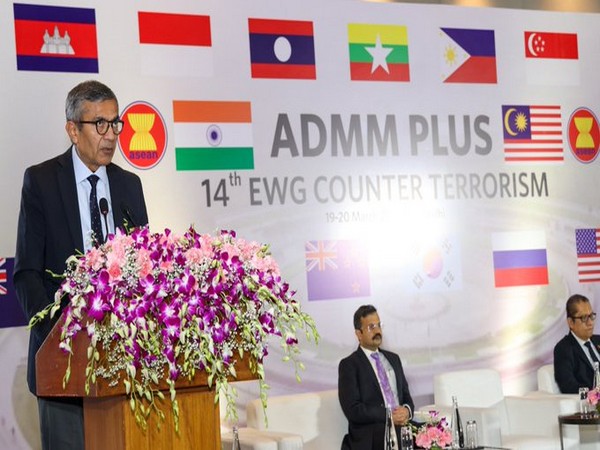India Reaffirms ASEAN Commitment to Combat Terrorism and Radicalization
At the 14th ADMM-Plus Counter-Terrorism meeting, Defence Secretary Rajesh Kumar Singh emphasized India's dedication to the ASEAN framework in combating terrorism. Highlighting threats in the Indo-Pacific, he advocated for regional cooperation, technology use, and enhanced intelligence sharing to combat radicalization and terrorist financing.

- Country:
- India
Defence Secretary Rajesh Kumar Singh reiterated ASEAN's combined resolve to adopt a 'Whole of Government and Whole of Society' approach against radicalization and violent extremism. In his address at the 14th ADMM-Plus Counter-Terrorism meeting's opening session in New Delhi, Singh stressed the necessity to disrupt terror financing networks, underscoring India's active role in ASEAN-led initiatives.
He highlighted India's participation in various regional frameworks such as the ASEAN India Forum, East Asia Summit, and ADMM Plus, all of which create essential pillars of an emerging ASEAN-centric regional security strategy. Singh asserted that decades of cross-border terrorism have not, and will not, deter India's resolve to combat all terrorism forms.
Discussing current expert deliberations, Singh acknowledged the escalated global terrorism threat but emphasized India's resolute stance. India's experience with cross-border terrorism strengthens its national determination. The Indo-Pacific region faces various security challenges, including terrorism, narcotics, and cyber threats, all within the technological proliferation landscape.
Recognizing terrorism's evolving nature, Singh called for an action-oriented approach to combat threats that transcend national borders, especially in the Indo-Pacific. Emphasizing India's commitment to a zero-tolerance policy against terrorism, he advocated for robust domestic policies, improved intelligence sharing, and fortified regional cooperation.
Singh aligned India with the 2018 ASEAN joint statement on terrorism, advocating for increased collaboration among ASEAN members and dialogue partners, including the ADMM. He referenced India and Malaysia's collaboration as co-chairs dedicated to yielding impactful outcomes.
Stressing terrorism's capacity to destabilize governments and curb development, Singh underscored the collective duty to guide decision-makers in countering these threats. The conference focuses on the technological misuse by terrorists, particularly AI-driven propaganda and encrypted communications, alongside bolstering cyber resilience.
The meeting highlighted the necessity for coordinated governmental and societal efforts against radicalization, advocating strengthening legal and financial infrastructures to impede terror financing networks. Singh concluded by urging enhanced cooperation in addressing these challenges comprehensively.
(With inputs from agencies.)
ALSO READ
India and Malaysia to Co-Chair Pivotal ADMM-Plus Meeting on Counter-Terrorism
India Co-Chairs ASEAN Conclave on Counter-Terrorism: A Strategic Leap
India's Strategic Role in the Indo-Pacific: A Call for UN Security Council Reform
India Hosts QUAD Workshop on Pandemic Preparedness for Indo-Pacific Region
Quad Nations Unite for Pandemic Preparedness in Indo-Pacific










